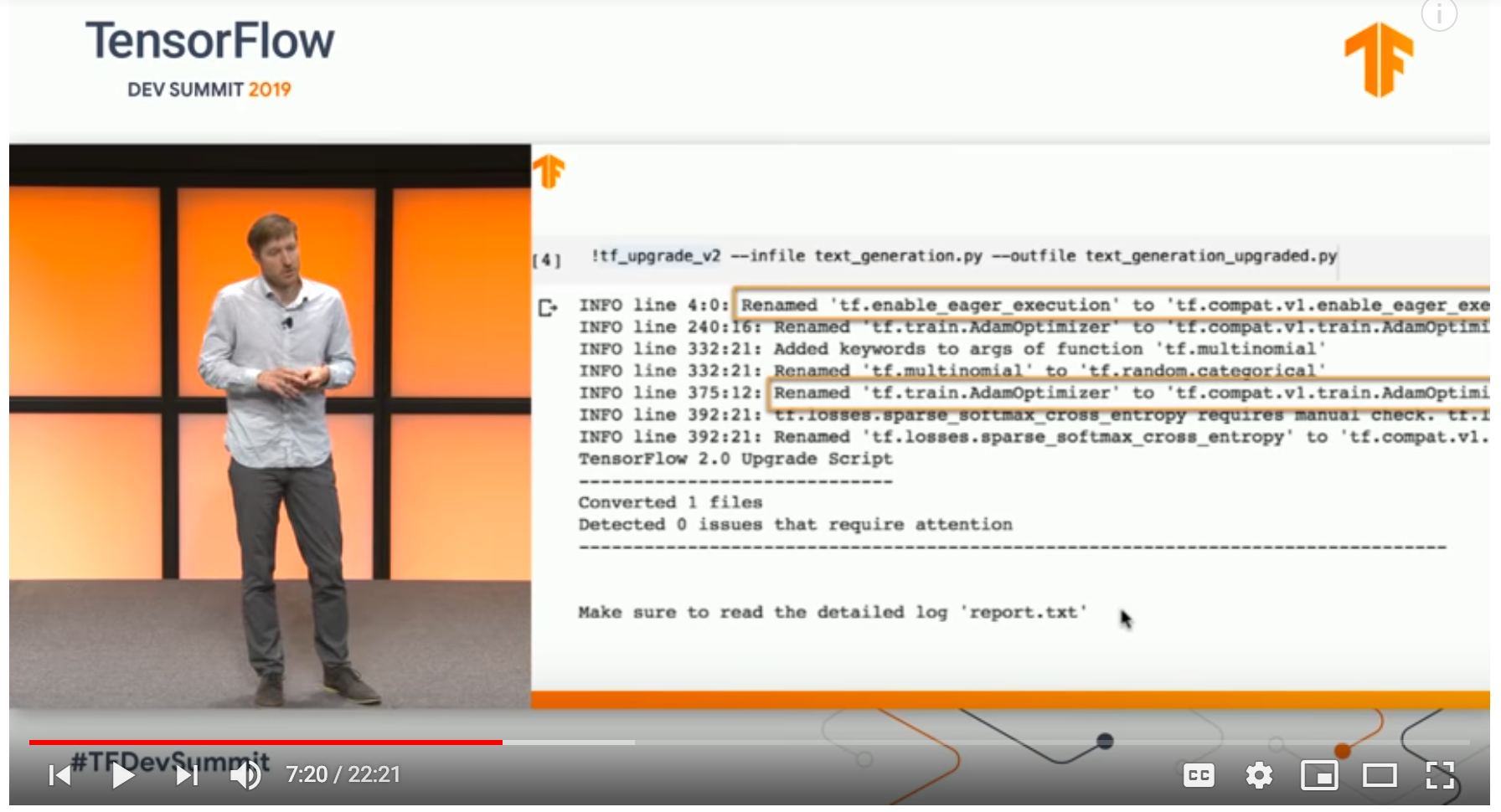TensorFlow and High Level APIs
A great presentation on the upcoming release of TensorFlow v2 by Martin Wicke.

I got a chance to watch this great presentation on the upcoming release of TensorFlow v2 by Martin Wicke. He goes over the big changes - and there's a lot - plus how you can upgrade your earlier versions of TensorFlow to the new one. Let's hope the new version is faster than before! My video notes are below:
TensorFlow
- Since it's release, TensorFlow (TF) has grown into a vibrant community
- Learned a lot on how people used TF
- Realized using TF can be painful
- You can do everything in TF but what is the best way
- TF 2.0 alpha is just been released
- Do 'pip install -U --pre tensorflow'
- Adopted tf.keras as high-level API (SWEET!)
- Includes eager execution by default
- TF 2 is a major release that removes duplicate functionality, makes the APIs consistent, and makes it compatible in different TF versions
- New flexibilities: full low-level API, internal operations are accessible now (tf.raw_ops), and inheritable interfaces for variables, checkpoints, and layers
- How do I upgrade to TensorFlow 2
- Google is starting the process of converting the largest codebase ever
- Will provide migration guides and best practices
- Two scripts will be shipped: backward compatibility and a conversion script
- The reorganization of API causes a lot of function name changes
TensorFlow v2

- Release candidate in 'Spring 2019' < might be a bit flexible in the timeline
- All on GitHub and project tracker
- Needs user testing, please go download it
- Karmel Allison is an Engineering manager for TF and will show off high-level APIs
- TF adopted Keras
- Implemented Keras and optimized in TF as tf.keras
- Keras built from the ground up to be pythonic and simple
- Tf.keras was built for small models, whereas in Google they need HUGE model building
- Focused on production-ready estimators
- How do you bridge the gap from simple vs scalable API
- Debug with Eager, easy to review Numpy array
- TF also consolidated many APIs into Keras
- There's one set of Optimizers now, fully scalable
- One set of Metrics and Losses now
- One set of Layers
- Took care of RNN layers in TF, there is one version of GRE and LSTM layers and selects the right CPU/GPU at runtime
- Easier configurable data parsing now (WOW, I have to check this out)
- TensorBoard is now integrated into Keras
- TF distribute strategy for distributing work with Keras
- Can add or change distribution strategy with a few lines of code
- TF Models can be exported to SavedModel using the Keras function (and reloaded too)
- Coming soon: multi-node sync
- Coming soon: TPU's
There's a lot in this 22 minute video about TensorFlow v2. Must watch.





Member discussion